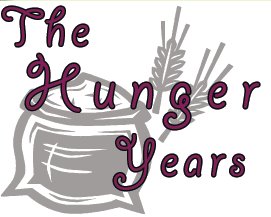Sometimes, usually in the breakroom at work or when out to a restaurant with friends/acquaintances, people notice my meatless diet.
"Are you vegetarian?," they ask.
"Nope." And then I trail off a little awkwardly, because my diet is similar to vegetarianism, but there's more to explain. I examine the person's level of interest. Do they want the long or short explanation?
I am a hospitalitarian. I have been for 2 and 1/2 years. Before that, I was a vegetarian for 1 year.
Why did I switch over? Why did I make a name for my diet? Why was I vegetarian at all?
First of all, I became vegetarian, not because I hate eating meat, but because I do not like the American meat industry (I am sure past blogs help clarify my distaste for the agribusiness). I did not want to support the industry nor did I want to cram an overload of harmful foods into my system. I was raised on meat, but I did not like its effects on me.
My junior year of college, I decided to spend a huge part of my summer doing missions work in Kenya. This came with a catch though- I learned through training cross-cultural relations that it is considered VERY RUDE in other cultures to turn down ANY food given to you. I realized that I would have to eat meat in Kenya, and I would have to re-introduce meat into my diet.
After experimenting with dignitarianism and flexitarianism (wiki them) I decided it was best to ONLY eat meat out of hospitality.
This means, when I go to peoples' houses where I am not buying the food (this includes my parents' house), I eat meat, especially when it is served as the main course. This has been a very relational tool. People are centered around food. What's for dinner is very important. Yes, turning down a food that is not of taste preference is acceptable, but think about the time and money that goes into preparing the food. The food is a means of relationship between people. It brings together friends, families and communities.
Honestly, when I became vegetarian, my family was very offended. No longer could I eat my dad's meatball's or italian sausage, his chicken cutlets, london broil, or steak fajitas. Food is my dad's pride. It's understandable that he would be upset when people don't eat it and sits in the fridge for days. I started demanding vegetarian alternatives to my favorite meals, and trying to impose my preferences on my family who already have a vibrant food culture. They felt offended and I felt offended when they didn't meat my ethical demands.
In a foreign culture, this takes new meaning. In Kenya, I ate foods I hardly even eat in America. For example, my first lunch in the Kenyan household hosting me was two fat, juicy hot dogs. I hate hot dogs and have since child hood. But I ate them. In America, I would usually have the option to opt out of hot dogs for a hamburger or chicken at a BBQ. And that's OK. Under hospitalitarianism, it's OK to opt out of foods when you have other other options. But when you have no other option, and your host is serving you food, you should eat those hot dogs.
When I am providing my own food, or am in a restaurant, I do NOT BUY meat. Now that I live on my own, my diet is vegetarian except for when I visit other people. What do I do when people buy me food at a restaurant? Judgment call. I eat the meat if there is no other food available, but I look for vegetarian options (I do not usually even trust meat served in restaurants so it's a rare occassion when I don't opt for vegetarian option).
What about when people come over MY house? What do I do then? What if they usually eat meat? If they are regular carnivores, I will serve them meat. I used to request people to buy the meat if they want it (particularly in college and it was just guy friends demanding meat). Now I am willing to buy free-range/local meat at a nearby merchant, to serve them the food they're going to love.
People think that vegetarians/vegans love animals more than they love people. I think that is not true in many cases. Hospitalitarianism is about people first, and then animals. It's about relationships, while still being conscientous about where food comes from.
It's about setting the tone for the environment you're in and creating a community not centered around individual preferences but around sharing the same food, while developing more meaningful connections with those around you.
Food speaks loudly at the table.
http://www.urbandictionary.com/define.php?term=Hospitalitarian
I just put up a definition for hospitalitarian. Please give it a thumbs up. A few friends of mine are helping me to make it a more widespread word.
Are pesticides racist?
5 years ago




